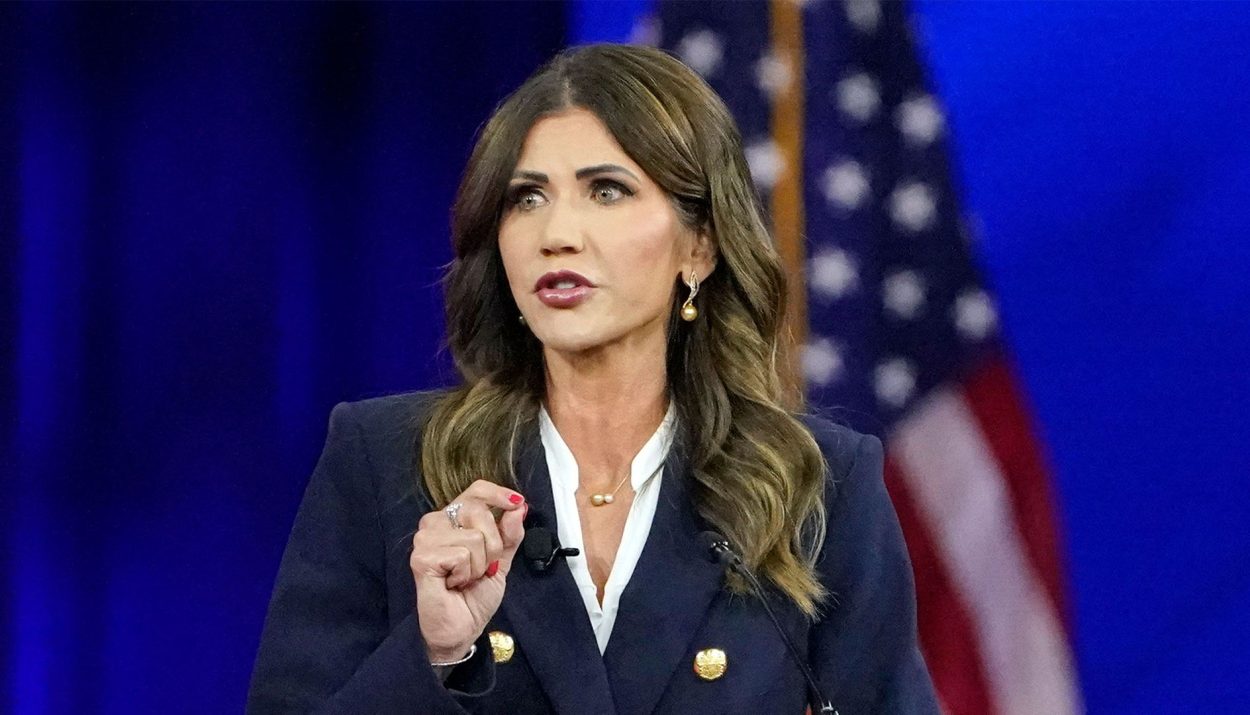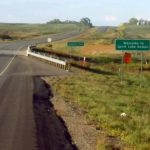Governor Kristi Noem is causing more controversy with South Dakota’s Native nations. The Cheyenne River Sioux Tribe is the latest to ban Noem from their lands, voting unanimously on April 2 to make her persona non grata.
This follows Noem’s uninvited appearance at a sacred Pe’ Sla meeting. The move shows escalating tensions after the governor alleged cartel involvement and mismanagement. Noem seems intent on confrontation, but will their banning of her help? Ts leading up to this latest development.
Kristi Noem Banned From Cheyenne River Reservation
Tensions have escalated between South Dakota Governor Kristi Noem and Native tribes in the state. Noem’s unannounced appearance at the quarterly Pe’ Sla meeting on March 29 angered Cheyenne River Sioux Tribe representatives.
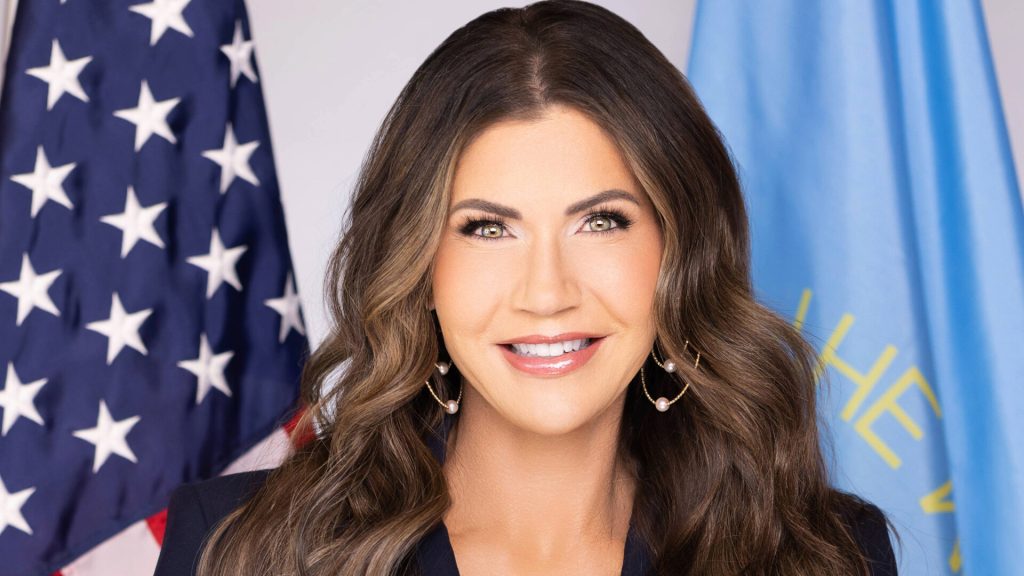
They voted unanimously to ban Noem from their reservation during an April 2 tribal council meeting.
Reasons Behind The Ban
According to District Five representative Robert Walters, Noem has made “a lot of accusations about the tribes, about the cartel, council representatives being in bed with the cartel, stuff like that. It’s all false information.”

He motioned to banish Noem from the Cheyenne River Reservation. Chairman Ryman LeBeau expressed concern that Noem brought cameras to document her attendance at Pe’ Sla and “use it for her agenda.”
Noem’s Office Responds
Ian Fury, a spokesperson for Noem’s office, said, “Banishing Governor Noem does nothing to solve the problem. She calls on all our tribal leaders to banish the cartels from tribal lands.” However, Noem provided no evidence to support her claims of cartel involvement.
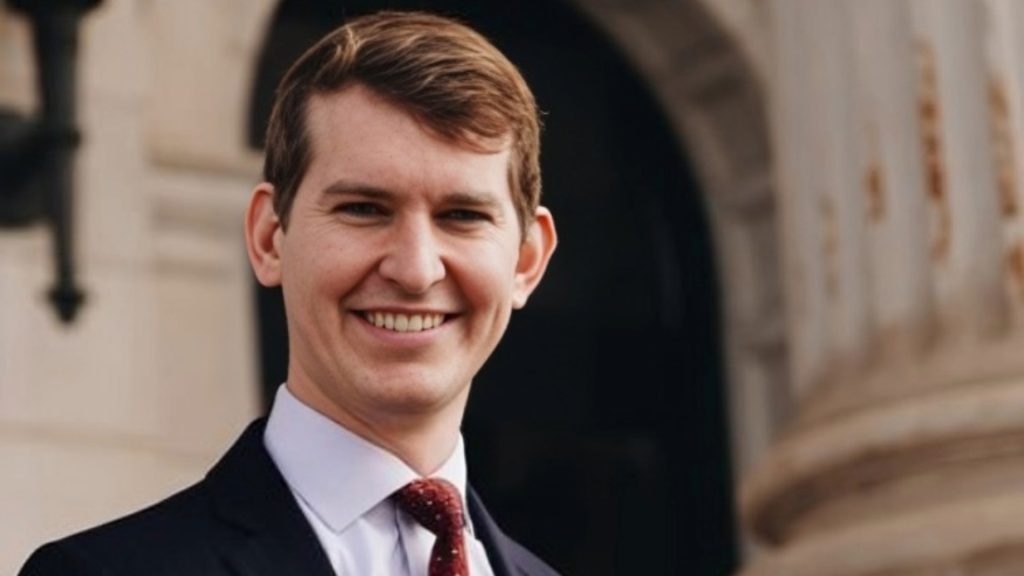
She calls on all our tribal leaders to banish the cartels from tribal lands.” Noem had said her March 29 visit was “positive and substantive, but challenges remain. The conversation started — that’s vital.”
Highlighting The Complexities Between Native Tribes The Government
The allegations and resulting tensions highlight the complex relationships between state governments and Native tribes. While open communication is ideal, Noem’s approach and rhetoric have offended and angered the Cheyenne River Sioux Tribe.
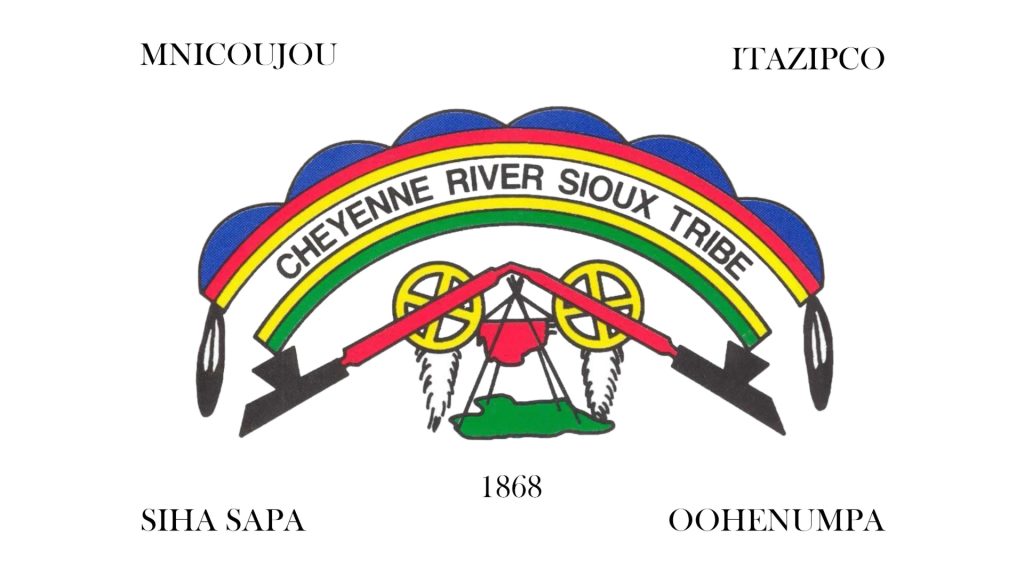
Banning her from their lands is a bold statement that they will not engage until she changes course. All parties want to solve problems but clearly disagree on appropriate methods and mutual respect.
Noem’s Controversial Appearance at Pe’ Sla Meeting
On March 29, South Dakota Governor Kristi Noem made an unannounced appearance at the quarterly Pe’ Sla meeting in Rapid City. Her presence angered representatives from the Cheyenne River Sioux Tribe, who claimed Noem brought cameras to document her attendance for “her agenda.”
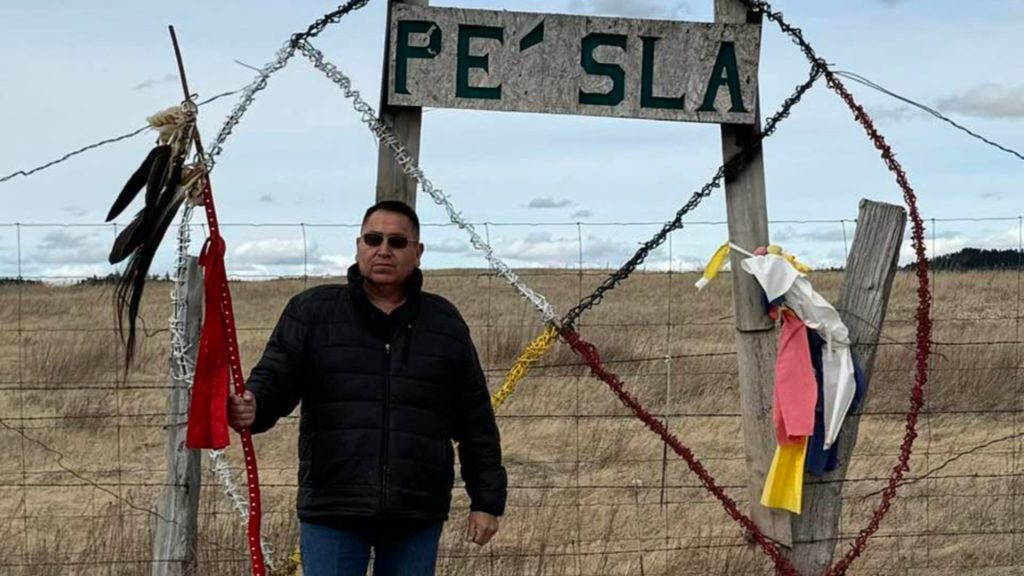
Tribal Chairman Ryman LeBeau expressed concern over Noem’s attendance and told the council that during a recent meeting of the Great Plains Tribal Chairman’s Association, leaders discussed how to handle Noem’s allegations against Native nations. “One of the ideas was to do what Oglala did and banish her from our reservations,” LeBeau said.
Chairman Concerned About Noem’s Actions
Cheyenne River Sioux Tribe Chairman Ryman LeBeau voiced concerns over Noem attending the Pe’ Sla meeting without permission. LeBeau said Noem brought cameras to film herself at the event for “her agenda.”
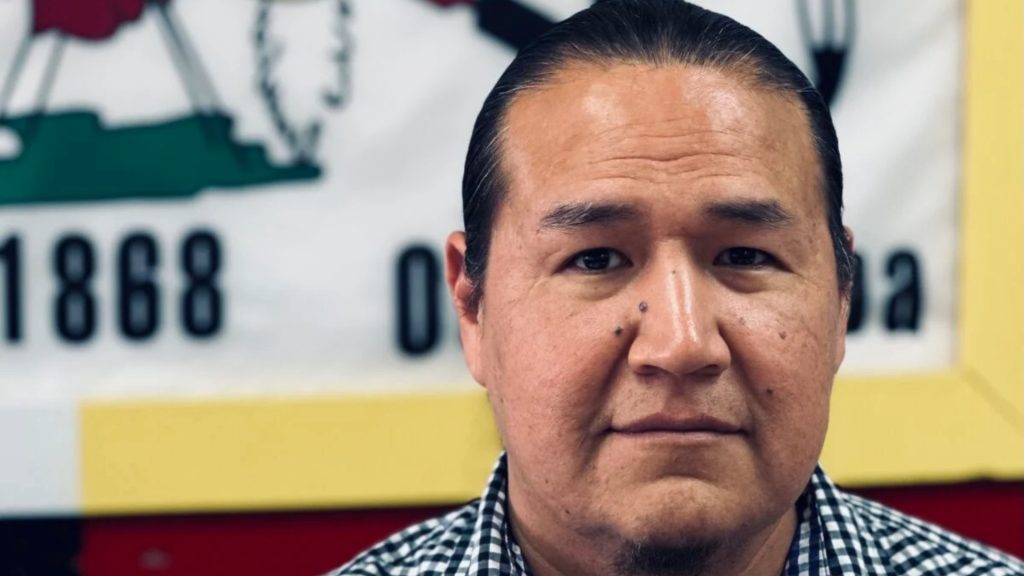
LeBeau reported that leaders of nine tribes in South Dakota discussed banning Noem from reservations like the Oglala Sioux Tribe did. “One of the ideas was to do what Oglala did and banish her from our reservations. Another idea was to develop some policy and enact sanctions on her.
Unanimous Vote to Ban Noem
Tribal council representatives were furious with Noem’s allegations and presence at the Pe’ Sla meeting. District Five Representative Robert Walters motioned to ban Noem from the Cheyenne River Reservation. The motion passed unanimously with a 12-0 vote.
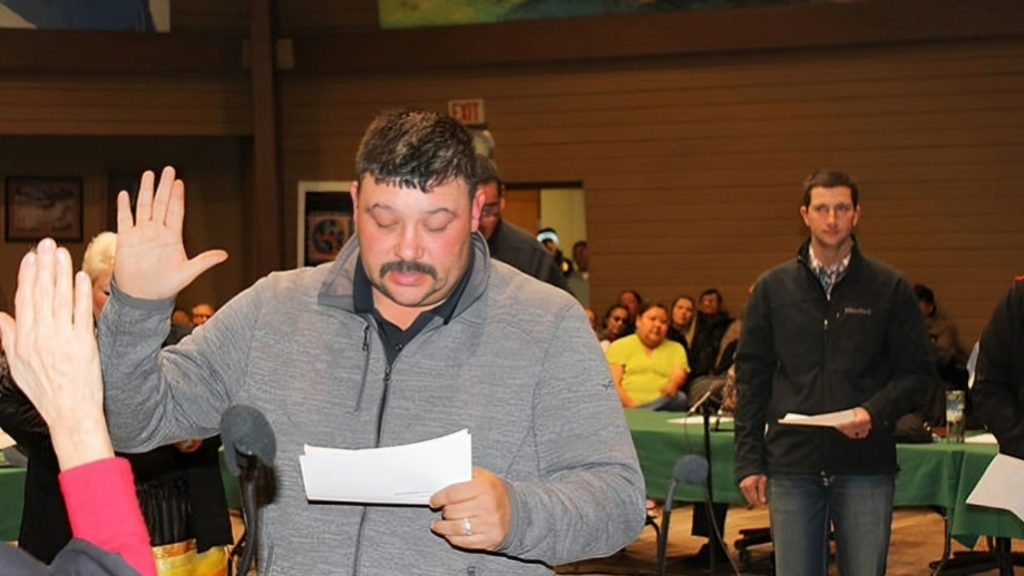
“This person has made a lot of accusations about the tribes, about the cartel, council representatives being in bed with the cartel, stuff like that.
This Is the Second Reservation to Ban Noem
The Cheyenne River Sioux Tribe voted unanimously to ban South Dakota Governor Kristi Noem from their reservation during an April 2 tribal council meeting. Cheyenne River representatives were angered after Noem showed up unannounced at the March 29 quarterly Pe’ Sla meeting in Rapid City.
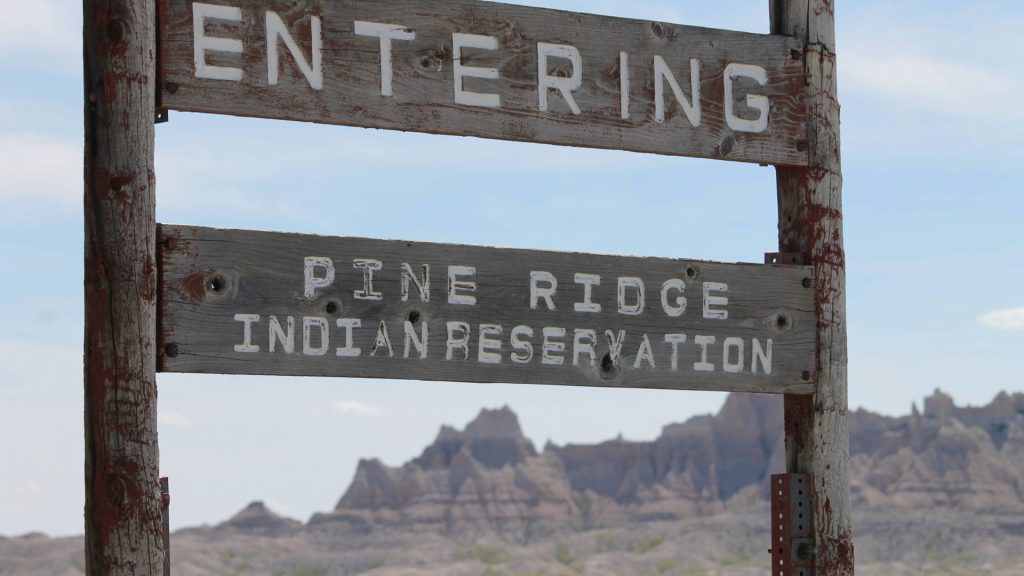
This marks the second reservation to ban Noem, following the Oglala Sioux Tribe’s ban in January.
Pine Ridge Reservation Previously Banned Noem
The Oglala Sioux Tribe banned Gov. Kristi Noem from the Pine Ridge Reservation in January after she alleged cartel involvement on tribal lands.
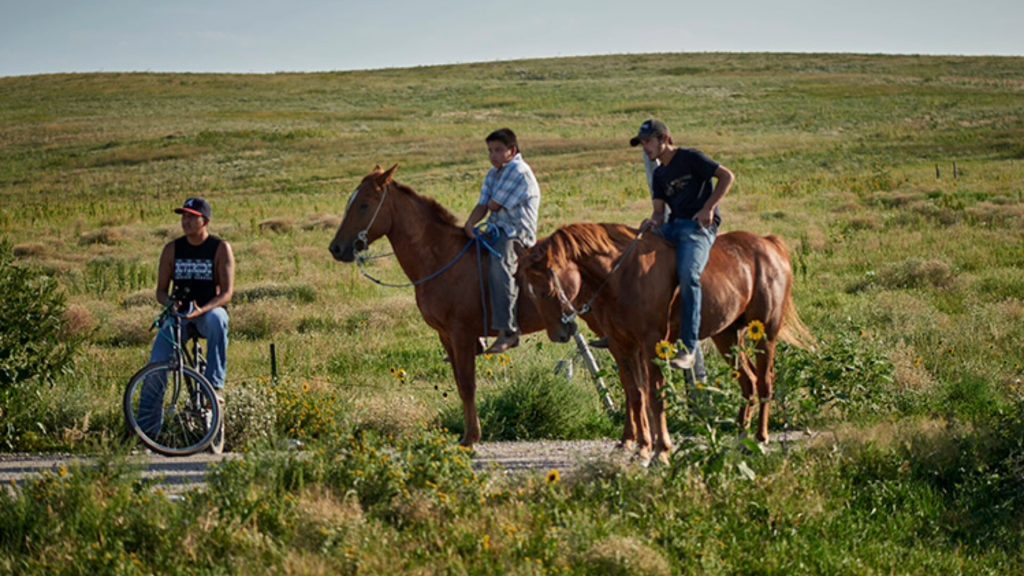
Following her claims, the Cheyenne River Sioux Tribe unanimously voted to ban Noem from their reservation lands as well.
Policy Needed for Noem
Chairman Ryman LeBeau expressed concern over Noem bringing cameras to document her attendance at the Pe’ Sla meeting “for her agenda.”
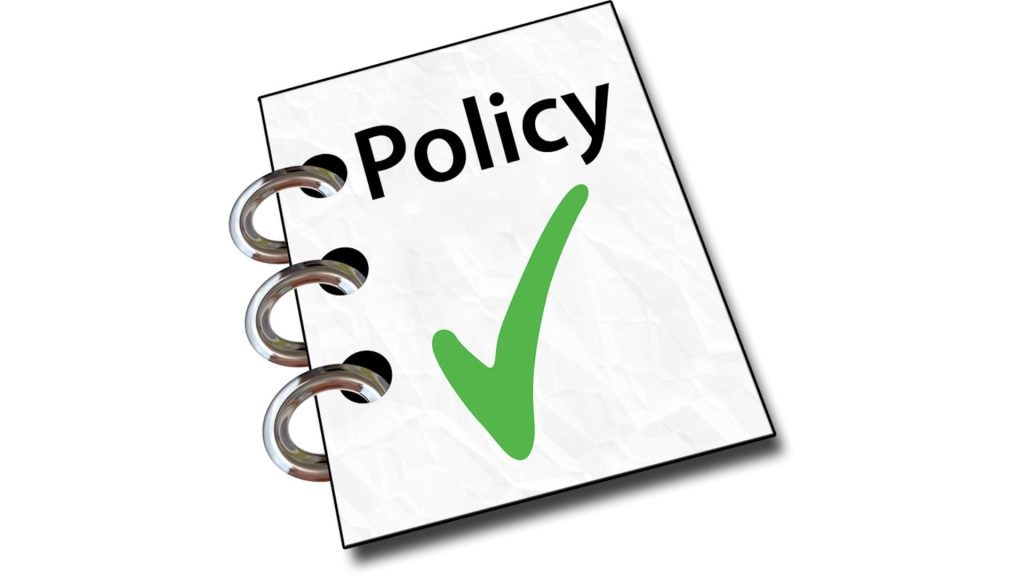
LeBeau said tribal leaders discussed banning Noem or developing a policy to make her leave meetings if she shows up uninvited.
Noem Calls for Cartel Bans
Noem responded that “banishing” her won’t solve issues on tribal lands. “She calls on all our tribal leaders to banish the cartels from tribal lands,” her communications director, Ian Fury, said in an email. Noem said on social media that her discussion at the Pe’ Sla meeting was “positive and substantive, but challenges remain.
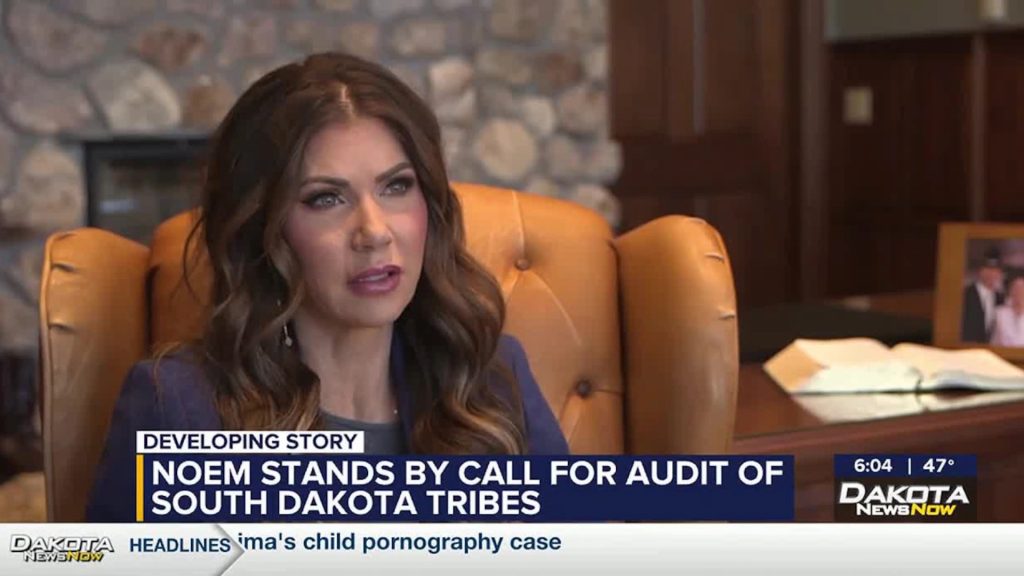
The conversation started — that’s vital.” One of the ideas was to do what Oglala did and banish her from our reservations. Another idea was to develop some policy and enact sanctions on her. That way, if she shows up to one of our meetings, we’ll make her leave until she follows the process that we set up to engage with her,” LeBeau told the tribal council.
Noem Calls to Banish Cartels, Not Herself
Governor Kristi Noem clearly did not expect the Cheyenne River Sioux Tribe to turn her calls to banish cartels against her.
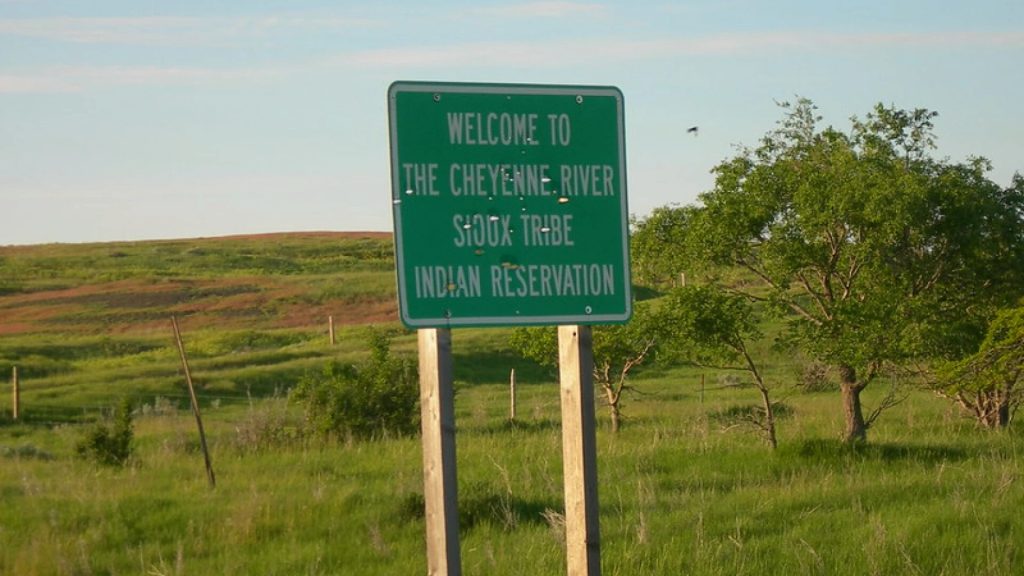
Following her allegations of cartel involvement and mismanagement on tribal lands in January, Noem made an unannounced appearance at the quarterly Pe’ Sla meeting on March 29. Her presence angered council representatives, who felt she was using the event for her political agenda.
Concerns Over Noem’s Motives
Chairman Ryman LeBeau told the council Noem brought cameras to document her attendance at the Pe’ Sla meeting. He worried she would use the footage to further “her agenda” rather than open, constructive dialog.
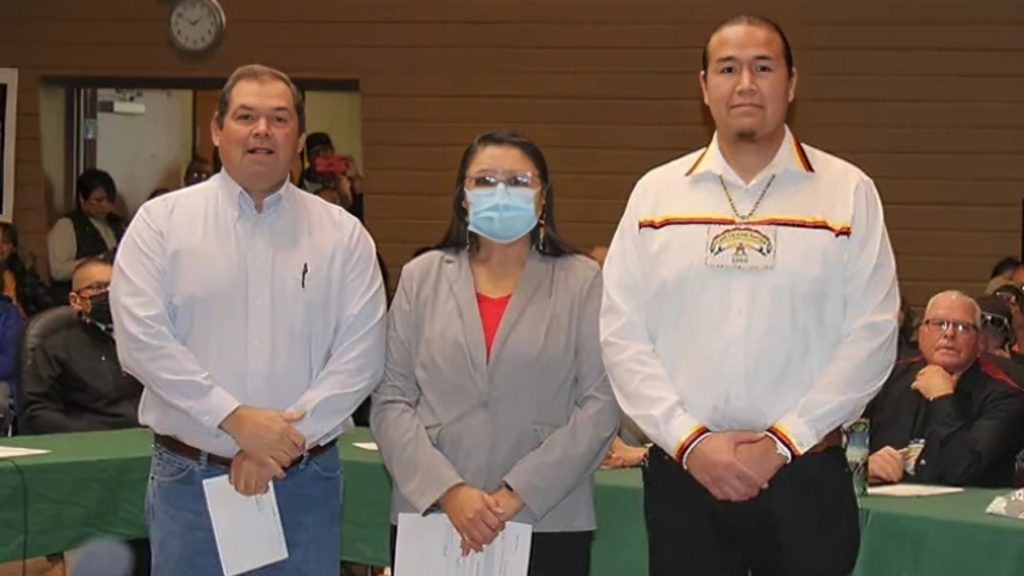
The leader suggested that the tribe establish a policy to handle Noem’s future interactions, ensuring she follows the proper process before engaging with the Cheyenne River Sioux Tribe.
Calls for Policy and Sanctions
Policy and sanctions could be a reasonable solution, forcing Noem to follow proper process in addressing issues with tribes before making public allegations.
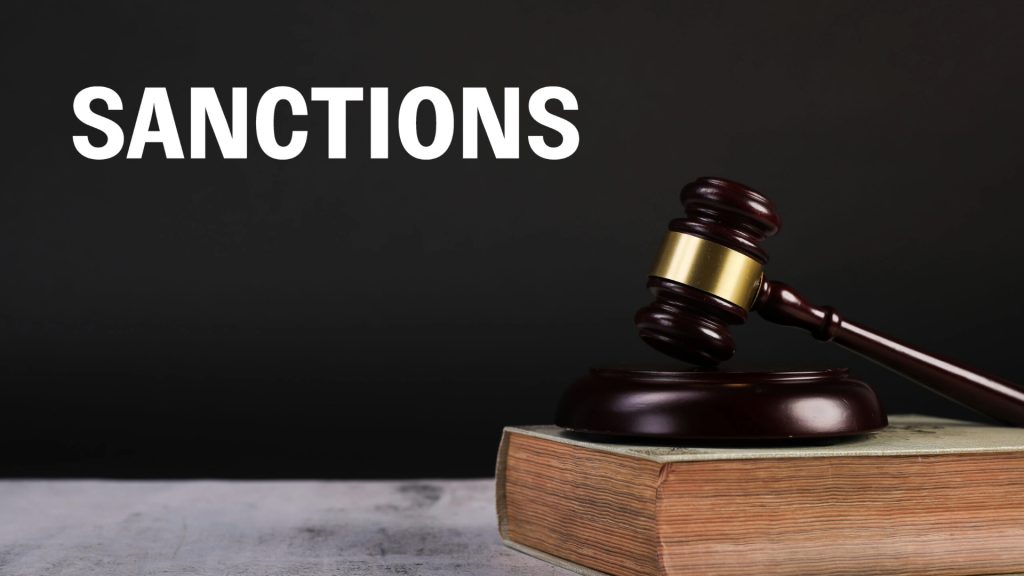
However, Noem’s posturing and political agenda may prevent good-faith discussions and solutions. The tribes seek to solve real problems and not engage in rhetorical battles, but Noem’s tactics leave them little choice but to respond in kind.
An Unclear Strte-Tribal Relationship
With two of South Dakota’s largest tribes now banning the Governor, the future of state-tribal relations is unclear.

Noem’s allegations and policy stances indicate she and tribes differ fundamentally in their views of tribal authority, law enforcement, education, and economic opportunity on reservations.
A More Counterproductive Than Constructive Approach
While Noem called on tribes to banish cartels in a social media post about the Pe’ Sla meeting, the Cheyenne River Sioux Tribe turned her rhetoric against her.

The Cheyenne River Sioux Tribe’s vote to banish Noem suggests her approach was more counterproductive than constructive.
A Unanimous Vote With No Further Explanation
The leaders of the Cheyenne River Sioux Tribe did not provide further comment on their decision to ban Noem from their reservation.

However, their unanimous vote signaled that they did not view her unannounced visit or social media post as positive or substantive. Noem’s office continues to call for action against “cartels,” though tribes say there is no evidence to support her claims.
A Strong Stance Against Disparaging Comments
The ongoing conflict between Governor Noem and tribal nations in South Dakota highlights the complex dynamics between state and tribal governments.
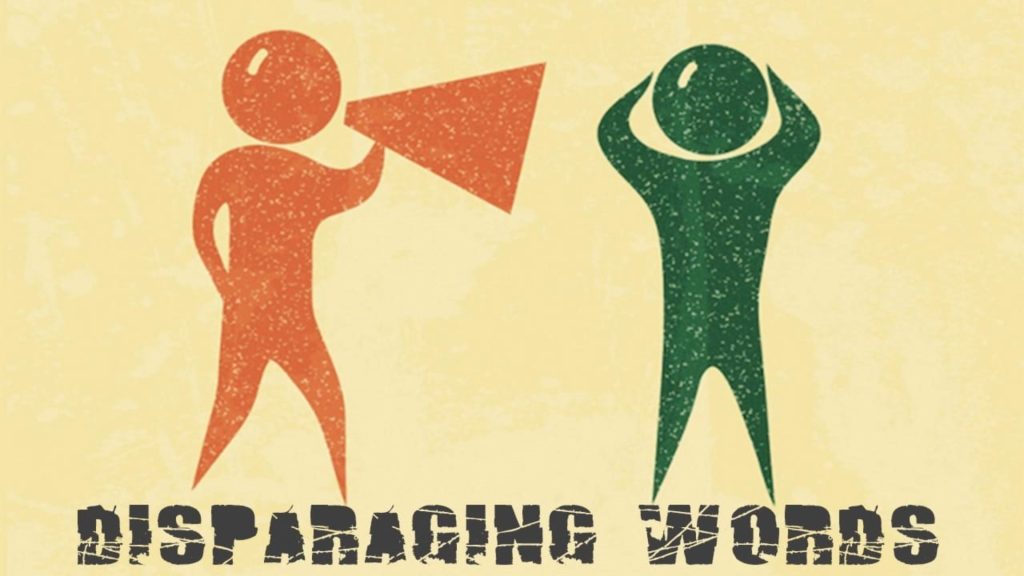
While banning the Governor from tribal lands sends a strong message, it does little to foster meaningful dialog and collaboration. With accusations flying on both sides, building trust and finding common ground will be a difficult task.
A Last Line of Defense Against Encroachment
With two of South Dakota’s largest tribes now banning the Governor, the future of state-tribal relations is unclear. Noem’s allegations and policy stances indicate she and tribes differ fundamentally in their views of tribal authority, law enforcement, education, and economic opportunity on reservations.

Banning Noem may be a last line of defense for tribes determined to protect their interests against her encroachment.

